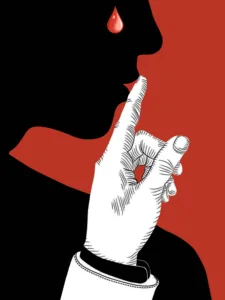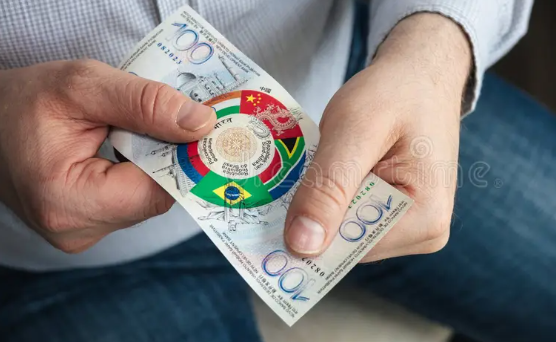Between Morality and Regulation: The Complex Legal Tapestry of Is Prostitution Legal in India

is prostitution legal in india
Introduction: is prostitution legal in India
In the intricate tapestry of Indian society, the subject of prostitution stands as a multifaceted and often controversial reality. The red-light districts, shrouded in myths, misconceptions, and societal taboos, prompt a critical exploration of the legal framework surrounding sex work in the country. This article delves into the heart of the matter, unraveling the historical threads that is prostitution Legal in India.
As we embark on this journey, it is essential to recognize the historical roots that have shaped the perception and regulation of sex work in India. From ancient cultural practices to the British colonial influence, the contours of the legal landscape have been molded by a myriad of forces. Today, against a backdrop of shifting social attitudes and ongoing debates, the legal status of prostitution remains a subject of both public interest and legislative scrutiny.
This exploration aims to shed light on the existing legal framework, examining the provisions laid out in the Immoral Traffic (Prevention) Act and its implications for sex workers. However, the story extends beyond statutes and courtrooms, delving into the lived experiences of those engaged in sex work and the challenges they face within the current legal paradigm.
In the following pages, we will navigate the arguments for and against the legalization of prostitution, dissecting the complexities that underlie this contentious issue. We’ll also peer into international perspectives, drawing comparisons that illuminate potential pathways for reform.
As we go through this complex web, it becomes clear that is prostitution legal in India position is a reflection of society’s values, public opinion, and the larger struggle for justice and human rights rather than just a legal issue. Come along on our investigation as we try to comprehend, analyze, and possibly even rewrite the legal story around sex labor in modern-day India.

History of Prostitution in India: Is prostitution legal in India
Is Prostitution Legal In India ? India’s prostitution history is a complex fabric knitted together by colonial influences, changing social mores, and age-old cultural customs. The Indian subcontinent has long tolerated prostitution in its different manifestations; references to it can be found in historical narratives, folklore, and ancient writings.
Ancient Practices: In ancient India, the existence of courtesans, known as “ganikas” or “veshyas,” is documented in texts such as the Kamasutra. These women were often highly skilled in arts and culture, and their role extended beyond mere sexual companionship. They played integral roles in the courts, contributing to the intellectual and artistic pursuits of the time.
Colonial Influence: The British colonial period significantly impacted the perception and regulation of prostitution in India. The Contagious Diseases Acts, implemented in the 19th century, aimed at controlling the spread of sexually transmitted infections among soldiers and sailors. These acts legitimized the medical examination of women suspected of being prostitutes and marked a pivotal moment in the state’s involvement in regulating sex work.
Immoral Traffic (Prevention) Act, 1956: Post-independence, the Immoral Traffic (Prevention) Act, 1956 (ITPA) became the cornerstone of legislation addressing prostitution in India. The ITPA criminalized certain activities related to prostitution while distinguishing between those who sell sex and those who exploit or traffic individuals into the trade. This legal framework aimed to prevent the commercial exploitation of women and protect public morality.
Changing Social Dynamics: Over the years, societal attitudes towards prostitution have transformed. While the ancient recognition of the role of courtesans reflected a certain acceptance, the colonial and post-colonial eras brought a more punitive approach, driven by moral and public health concerns.
Contemporary Challenges: In the present day, the history of prostitution intersects with modern challenges. Sex workers continue to face social stigma, discrimination, and a lack of legal protection. Human trafficking for sexual exploitation remains a grave concern, necessitating a nuanced approach to address the complexities surrounding sex work in India.
It is important to understand the historical development of prostitution in India because it sheds light on how cultural, colonial, and legal factors have interacted to shape the way that sex work is perceived in this multicultural and culturally rich country and helps one navigate the complexities of the current legal environment.
Regulation and Legislation: Is prostitution legal in India
Is prostitution legal in India ? Over time, the laws and regulations about prostitution in India have changed, taking into account the intricate interactions between social, moral, and cultural factors. The Immoral Traffic (Prevention) Act, 1956 (ITPA), a landmark piece of law that establishes the parameters for the nation’s control of prostitution, serves as the primary legal framework for sex work or is prostitution legal in india.
Immoral Traffic (Prevention) Act, 1956: Enacted with the aim of preventing the exploitation of women for commercial sexual purposes, the ITPA criminalizes certain aspects of sex work while simultaneously distinguishing between voluntary sex work and activities involving coercion, exploitation, or trafficking. The Act classifies offenses related to prostitution, including solicitation, running brothels, living off the earnings of prostitution, and trafficking, as punishable offenses.
Voluntary vs. Forced Prostitution: One notable aspect of the ITPA is its attempt to differentiate between voluntary and forced prostitution. While consenting adults engaging in sex work are not explicitly criminalized, the act of solicitation, running or managing a brothel, and living off the earnings of prostitution are offenses. The intent is to curb exploitation and human trafficking while recognizing the agency of individuals engaging in consensual sex work.
State-Level Variations: India is a federal country, and as such, states have the power to formulate their own rules and regulations regarding the implementation of the ITPA. This has led to variations in the enforcement of prostitution-related laws across different states. Some states have chosen to adopt a more lenient or pragmatic approach, while others maintain a stricter stance.
Regulation and Licensing: Certain states have experimented with regulatory measures to provide a degree of legal recognition and protection to sex workers. For instance, there have been proposals for licensing or registering sex workers, with the idea of regulating the industry and safeguarding the rights of those involved. However, these attempts have been met with a mix of support and opposition, illustrating the ongoing debate on the most effective approach to address the complexities of sex work. Is prostitution Legal in India?
Challenges and Criticisms: The existing legal framework has faced criticism. Advocates for sex workers argue that criminalization perpetuates stigma, making it difficult for individuals to access healthcare, legal support, and protection from violence. Human rights concerns, especially regarding the vulnerability of sex workers, have prompted calls for a more comprehensive and rights-based approach to legislation.
It is clear from examining the laws and regulations about prostitution in India that the legal system is complex and divisive. There are continuous discussions about possible legislation and different types of regulation, making striking a balance between combating exploitation and defending the rights of sex workers a difficult task.
Current Legal Status of is prostitution legal in India:
The Immoral Traffic (Prevention) Act, of 1956 (ITPA) governs the legal position of is prostitution legal in India. Legal frameworks are subject to change, so it’s a good idea to keep an eye out for any updates or modifications to the law after that date.
Key Points Regarding the Current Legal Status:
- Criminalization of Activities:
- The ITPA criminalizes various aspects of sex work, including solicitation, running or managing brothels, living off the earnings of prostitution, and trafficking.
- While voluntary adult sex work is not explicitly criminalized under the act, certain related activities are considered offenses.
- Distinguishing Between Voluntary and Forced Prostitution:
- The ITPA attempts to distinguish between voluntary and forced prostitution. Consent is a crucial factor, and the act focuses on combating exploitation, coercion, and human trafficking.
- State-Level Variations:
- States in India have the authority to implement and enforce the ITPA, leading to variations in its application. Some states may adopt more lenient or pragmatic approaches, while others may choose a stricter enforcement stance.
- Challenges in Implementation:
- The enforcement of the ITPA faces challenges, including issues related to the identification of victims, the stigma associated with sex work, and the overall vulnerability of sex workers to exploitation and violence.
- Debates and Advocacy for Reform:
- There have been ongoing debates and advocacy efforts regarding the reform of laws related to prostitution in India. Some argue for a more rights-based and pragmatic approach that acknowledges the agency of sex workers and addresses the socio-economic factors contributing to their vulnerability.
- Human Rights Concerns:
- Human rights organizations and advocates have raised concerns about the impact of criminalization on the rights and well-being of sex workers. Stigmatization, lack of access to healthcare, and vulnerability to violence are among the issues highlighted in these discussions.
- Proposals for Reform:
- Various proposals for legal reform have been discussed, including the possibility of decriminalizing aspects of sex work, providing legal recognition and protection to sex workers, and exploring alternative regulatory models.
Arguments for Legalization: Is prostitution legal in India
Proponents of legalizing prostitution in India make many points, emphasizing the advantages for both society as a whole and sex workers. Though perspectives on this matter differ, the following are some prevalent justifications for the legalization of prostitution:
Advocates for the legalization of prostitution in India present several arguments, highlighting potential benefits for both sex workers and society at large. While opinions on this issue vary, here are some common arguments in favor of the legalization of prostitution:
- Worker Rights and Safety:
- Legalization can provide sex workers with legal recognition and rights, ensuring their protection under labor laws. This includes access to health and safety standards, fair working conditions, and the ability to seek legal recourse in cases of exploitation or abuse.
- Reduction of Exploitation:
- Legalizing and regulating the sex industry may help reduce instances of exploitation and human trafficking. A regulated system can empower sex workers to negotiate safer working conditions and screen clients, minimizing the risk of coercion.
- Health and Public Safety:
- Legalization allows for the implementation of health and safety standards within the sex industry. Regular health check-ups, access to contraceptives, and awareness programs can contribute to the overall well-being of sex workers and their clients. This approach may also help in controlling the spread of sexually transmitted infections.
- Focus on Real Crimes:
- By legalizing and regulating prostitution, law enforcement can redirect resources toward addressing more serious crimes, such as human trafficking, violence, and exploitation. This shift in focus allows authorities to target actual criminal elements within the industry.
- Taxation and Revenue Generation:
- Legalizing prostitution can contribute to the formal economy through taxation. Governments can collect revenue from the sex industry, which can then be directed towards public services, healthcare, and social programs.
- Reducing Stigma and Discrimination:
- Legalization can help destigmatize sex work and reduce societal discrimination against sex workers. This shift in perception may lead to improved social integration and acceptance, allowing sex workers to access mainstream services without fear of judgment.
- Empowerment and Agency:
- Legal recognition gives agency to sex workers, acknowledging their ability to make choices about their bodies and livelihoods. This perspective emphasizes the importance of respecting the autonomy and decisions of consenting adults engaged in sex work.
- Human Rights and Dignity:
- Legalization aligns with human rights principles, recognizing the right to work and the right to control one’s body. It advocates for the dignity and fundamental rights of sex workers, challenging the narrative that views them solely as victims.
- Regulation of Minors:
- A legalized framework allows for better regulation and monitoring of the industry, helping to prevent the involvement of minors in sex work. Legalization provides an avenue to address and combat child exploitation more effectively.
- Social Integration and Support:
- Legalizing prostitution can facilitate the integration of sex workers into society by providing access to social services, education, and support programs. This approach acknowledges their role as members of the community with diverse needs.
Various options, such as legalization with regulation as opposed to complete decriminalization, may be supported by different advocates. Ethical, social, and public health considerations are carefully considered in the debates over legalizing prostitution.
Current Challenges and Issues: Is Prostitution Legal in India
Prostitution in India is surrounded by a variety of difficulties and problems that are a reflection of the intricate interactions between social, legal, and economic variables. To address the needs and rights of sex workers, it is imperative to comprehend these challenges. These are a some of the problems and challenges that exist right now:
- Stigma and Discrimination:
- Sex workers often face deep-seated societal stigma and discrimination, leading to social exclusion and difficulties in accessing basic services such as healthcare and education.
- Exploitation and Coercion:
- Many individuals engaged in sex work, particularly those operating in unregulated or illegal environments, face risks of exploitation and coercion. Criminalization can contribute to their vulnerability by driving the industry underground.
- Violence and Harassment:
- Sex workers are at an increased risk of violence, including physical and sexual assault. The lack of legal protection and fear of criminal repercussions may discourage them from reporting incidents, perpetuating a cycle of abuse.
- Health Risks and Lack of Access to Services:
- Limited access to healthcare services, including regular health check-ups and support for sexual health, poses significant risks to the well-being of sex workers. Stigmatization often results in their exclusion from mainstream healthcare services.
- Trafficking and Forced Labor:
- Human trafficking for the purpose of sexual exploitation remains a serious concern. Criminal networks often exploit individuals, sometimes through deceptive means, leading to situations of forced labor and modern-day slavery.
- Legal Ambiguity and Inconsistency:
- The legal status of prostitution in India varies across states, leading to inconsistency in the implementation and enforcement of laws. This lack of uniformity can create challenges for sex workers who may face different legal environments based on their location.
- Access to Justice:
- Sex workers may encounter barriers in accessing justice due to the criminalization of their profession. Fear of legal consequences, coupled with societal bias, can deter them from reporting crimes or seeking legal assistance.
- Economic Marginalization:
- Limited employment opportunities and economic marginalization may contribute to the entry of individuals into sex work as a means of survival. Legal recognition and economic alternatives are crucial for addressing the root causes of vulnerability.
- HIV/AIDS and Other Health Concerns:
- Sex workers are at a higher risk of contracting and spreading sexually transmitted infections, including HIV/AIDS. Stigmatization and limited access to preventive measures and healthcare exacerbate these health concerns.
- Lack of Social Support:
- Sex workers often lack adequate social support structures, facing isolation and challenges in building relationships outside their profession. Support programs and initiatives are essential for addressing the social well-being of sex workers.
- Child Exploitation:
- The involvement of minors in sex work is a grave concern. Efforts to combat child exploitation and trafficking need to be strengthened through comprehensive legal measures and enforcement.
A multimodal strategy involving legal reforms, social programs, healthcare measures, and human trafficking efforts is needed to address these issues. It is still difficult but vital to strike a balance between acknowledging the agency of sex workers, defending their rights, and attending to public health issues.
Conclusion: Is Prostitution Legal In India
Is prostitution legal in India ? Prostitution is legal in India even though it is theoretically prohibited in particular situations, such as public solicitation, trafficking, and pimping. Prostitution is legal in India, although many Indians still consider it to be immoral and against their traditional norms. In summary, the legal standing of prostitution in India is a complicated, multidimensional matter that touches on ethical, social, and economic issues. It is clear from navigating the complex web of regulations, historical influences, and modern difficulties that the existing legal system affects sex workers’ life in both intentional and unexpected ways.
The main piece of legislation pertaining to prostitution is the Immoral Traffic (Prevention) Act, 1956, which attempts to distinguish between voluntary and coercive forms of sex work while criminalizing some components of the industry. But there are obstacles in the way of this legal framework’s execution, including as violence, discrimination, stigma, and sex workers’ susceptibility to exploitation.
Arguments for the legalization of prostitution highlight potential benefits such as worker rights, safety, and the reduction of exploitation. Advocates emphasize the importance of recognizing the agency of sex workers, ensuring their access to healthcare, and mitigating the risks associated with an underground, unregulated industry. However, these arguments are not without counterpoints, as opponents raise concerns about the moral and societal implications of legalizing certain aspects of sex work.
Current challenges, including stigma, violence, and economic marginalization, underscore the urgent need for a comprehensive and rights-based approach. Addressing these issues requires a nuanced understanding of the complexities involved, along with a commitment to protecting the human rights and dignity of all individuals, regardless of their engagement in sex work.
Going forward, it will be critical to carefully reevaluate the legislative framework in conjunction with social programs, healthcare initiatives, and human trafficking prevention measures. Protecting the rights of sex workers while also taking public health issues into account is a complex task that calls for cooperation and empathy from legislators, law enforcement, and the general public.
It is crucial to recognize the autonomy and humanity of sex workers in the endeavor to create a more just and equitable society. Open communication, evidence-based policy choices, and a shared dedication to tackling the underlying causes of vulnerability in the context of India’s sex business are the keys to bringing about significant change.




1 thought on “Between Morality and Regulation: The Complex Legal Tapestry of Is Prostitution Legal in India”